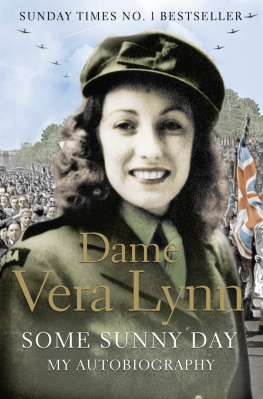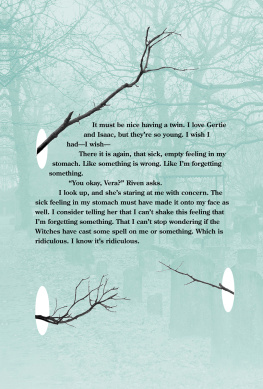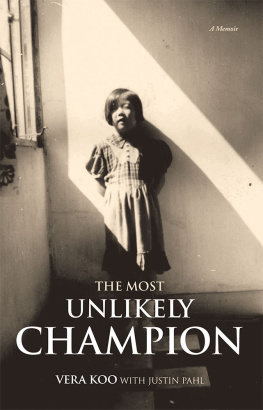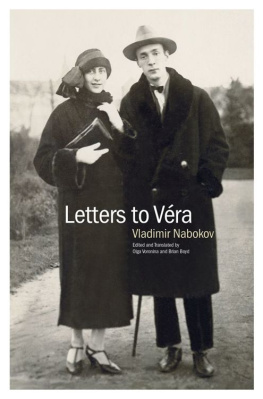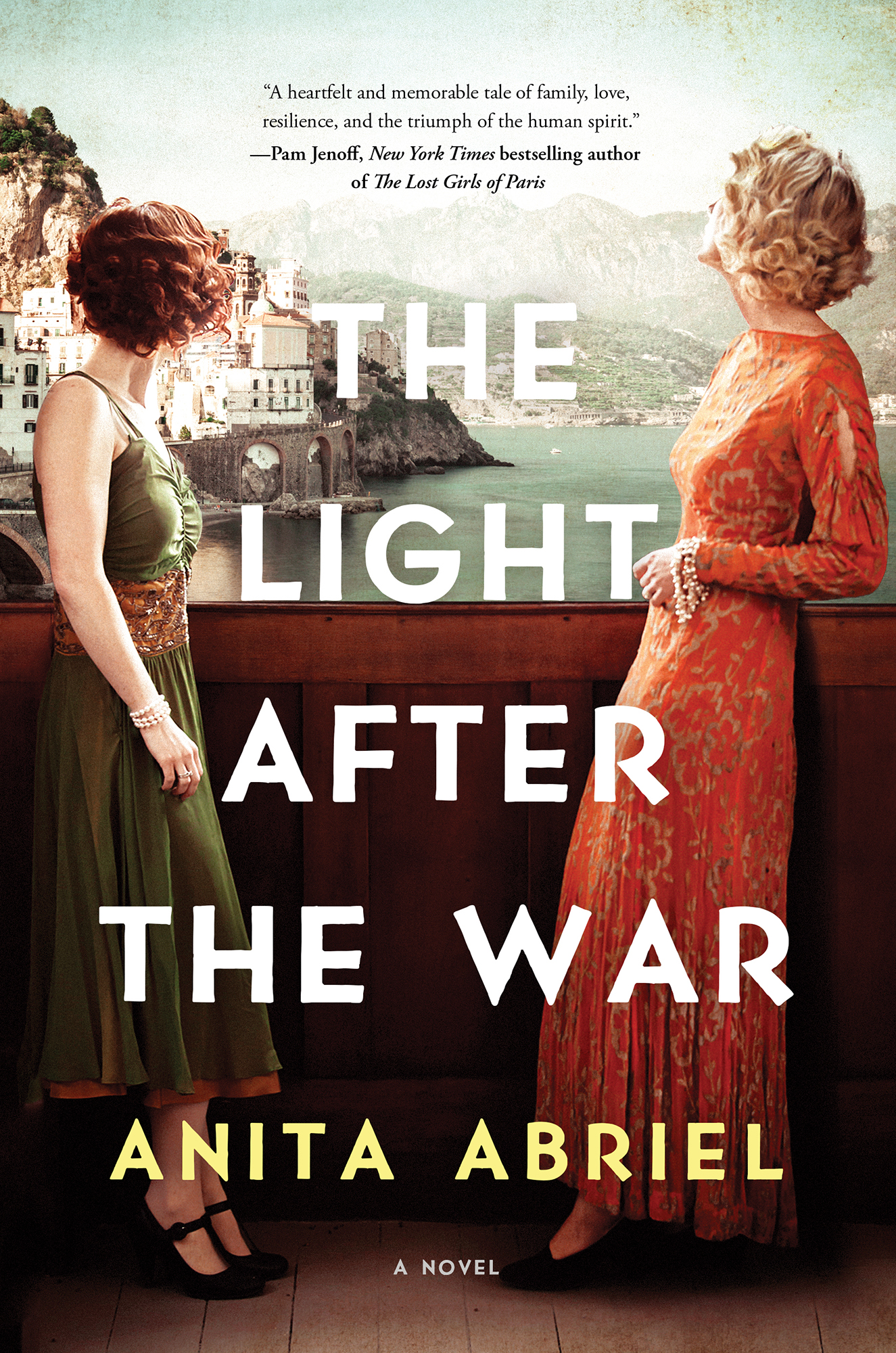Contents
Guide
To my mother
CHAPTER ONE
Spring 1946
Vera Frankel had never seen the sun so bright or streets teeming with so many people. Lovers held hands, teenagers zoomed by on Vespas, and old women carried shopping bags laden with fruits and vegetables. Vera smelled sweat and cigarettes and gasoline.
The experience of arriving in Naples from Hungary made Vera remember the early spring days in Budapest when she was eight years old and recovering from diphtheria. The curtains in her room had been drawn back and she was allowed to sit outside and eat a bowl of plain soup. Nothing had ever tasted so good, and the scent of flowers in the garden was more intoxicating than her mothers perfume.
All around her, people felt the same way now. The outdoor cafs overflowed with customers enjoying an espresso without fear of bombs exploding. They nodded at neighbors they had been too afraid to stop and talk to, and kissed boys returning from the front until their cheeks were raw. Eleven months ago the Allies had defeated the Nazis and the war in Europe was over.
I didnt know pizza like this existed, her best friend Edith said as she bit into a slice of pizza. For the last year and a half they had been hiding in the small village of Hallstatt in Austria, where all they had to eat was soup and potatoes. The tomatoes are sweet as honey.
Vera consulted the clock in the middle of the piazza. They sat at an outdoor table with two slices of pizza in front of them.
My appointment is at two p.m., Vera announced. I wont get the job if Im late.
Weve been in Naples for forty-eight hours, Edith protested, tying her blond hair into a knot. We havent seen the palace or the gardens or the docks. Couldnt you schedule your interview for tomorrow?
If I dont get the job, we wont be in Naples tomorrow, Vera replied grimly. She thought of the pile of lire that was carefully folded under the pillow in their room at Signora Rosas pensione. It was barely enough to cover a weeks accommodation for her and Edith. You need to find a job, too.
When was the last time you saw women who werent wearing gold stars, men not in uniform, people eating and drinking and laughing. Edith scanned the piazza. Cant we have one day to relax and enjoy ourselves?
You eat my slice. Vera pushed her plate toward Edith. Ill meet you at Signora Rosas in the evening.
I promise Ill look for a job after the noon riposo. Ediths blue eyes sparkled. We are in Italy now, we must behave like Italians.
Vera walked briskly through the winding alleys, consulting the map Signora Rosa had drawn her with directions for the American embassy. Signora Rosa owned the boardinghouse where they were staying, and in two days, she had already taken Vera and Edith under her wing. The American embassy was in the eleventh quarter, which had once been one of the most elegant parts of Naples. But the war had left gaping holes in the streets, obstructing her route. Daisies grew where buildings once stood, and sides of houses were missing, leaving their abandoned interiors exposed. Vera thought of her home in Budapest, the shattered windows of her parents apartment building, the women and children huddled together in the dark. Hungarian soldiers, young men who in another time would have asked her to dinner, had herded families toward the trains.
She thought of her father, Lawrence, who had been sent to a forced labor camp in 1941 and hadnt been heard from since. And of her mother, Alice, who had continued to set the table for him every night, as if one evening he would appear in his dark overcoat and scarf and sit down to her schnitzel.
And she thought of Edith, who was more like her sister than her best friend. They were both almost nineteen years old, born three days apart at the same hospital. They lived across the hall from each other their whole lives, and the doors to their apartments were always kept open.
Edith had always been the wild one: at fifteen she had borrowed one of her mothers dresses and convinced Vera to crash a New Years Eve gala at the Grand Hotel when Vera would have rather sat at home with a book. Edith hadnt wanted to flirt with boys; she wanted only to see the fashions worn by the most glamorous women in Budapest.
But Edith had changed when her childhood sweetheart, Stefan, didnt return from the labor camps. She was like a racehorse whose spirit had been broken and could barely trot around the course. It was Vera who propelled them forward after the war: acquiring the train tickets to Naples and finding Signora Rosas pensione. It was Vera who encouraged Edith to get dressed in the morning and do her hair. It was only when Edith was all dressed up and socializing at one of the piazzas that she seemed like her old self. Edith never let anyone see her without a belt cinched around her waist and her hair perfectly brushed.
Vera put the map away and turned off her mind. She could worry about Edith later; right now she had to focus on finding the embassy.
Excuse me. Vera approached an old man selling dried chestnuts. I am looking for the American embassy.
The Americans, the old man scoffed. They bombed our city and now they eat our pasta and steal our women. A pretty girl like you should marry an Italian boy!
Im not looking for a husband. Vera smoothed her black hair, suppressing the fact that she was Hungarian, not Italian. Im trying to get a job.
Behind those gates, the man said, pointing across the street. Tell them we can rebuild our own city. Weve been doing it for centuries.
Vera walked quickly to the villa. It had a rounded entry and marble columns. Ivy climbed the walls and the shutters were painted green. She straightened her skirt and wished she had splurged on a pair of stockings. But the money had to last until she and Edith were both working, and it didnt stretch for makeup or hosiery. Vera wet her lips and climbed the stairs to the front door.
Can I help you? A man wearing a khaki uniform answered the door. He was tall and blond, and his face was freshly shaven.
Im looking for Captain Wight, Vera said, trying to keep her voice from trembling.
The man slipped his hands in his pockets. He stood in the doorway, but Vera could see the circular entry behind him.
Im Captain Wight. But Im sorry, were not making donations today. You could try back on Friday. He tried to shut the door, but Vera put her hand out and stopped him.
Please, wait. Im here for the secretary job. She gave him a sheet of paper. Captain Bingham sent me.
Captain Wight glanced at the paper. He looked as if he was about to say something, but then shrugged.
Come in. Its too hot to stand outside.
Vera followed him through rooms decorated with marble floors and intricate frescoed ceilings. Sheets half covered brocade furniture, and velvet drapes hung from the windows.
Its like a palace, Vera breathed.
It was a palace, he said, leading her to a room lined with tall bookshelves. There was a large wooden desk in the center and an Oriental rug covering the floor. The Palazzo Mezzi was built in the eighteenth century. We commissioned it in 1943 from the Count and Countess Mezzi. The Mezzis fled to Switzerland, but we have not been able to contact them. We are lucky it escaped the bombs; some of the frescoes are priceless.
The old man on the corner who sells chestnuts thinks the Americans are taking everything that isnt theirs, Vera said lightly.



